All images courtesy of Vinnie Moore
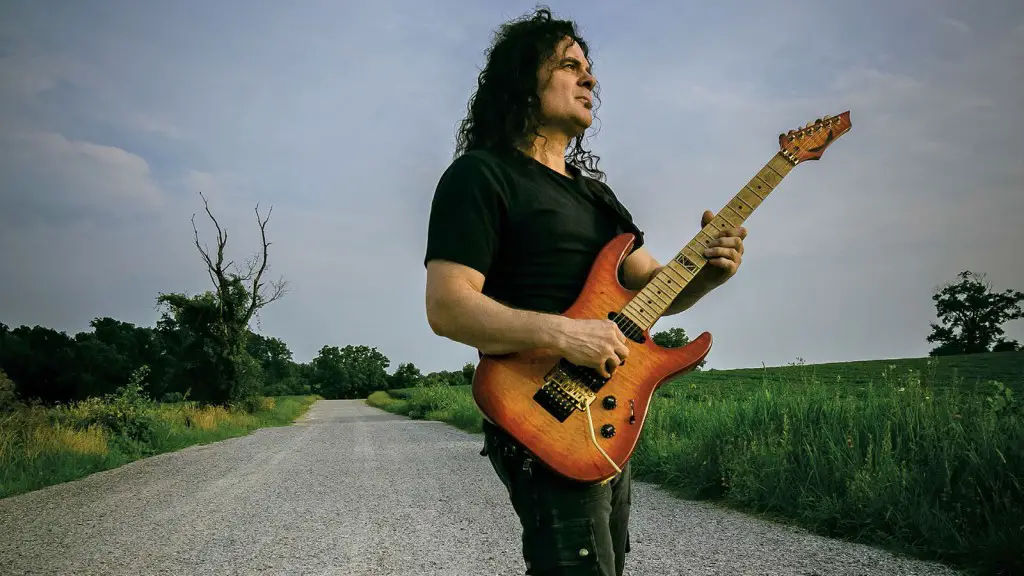
The virtuoso guitar boom of the late 1980s was a particularly fertile, and invigorating time for guitar-drive music. While many of its participants have come and gone, Vinnie Moore is not only one of the last standing, but he’s thriving to boot.
From humble east coast beginnings, at the age of twenty, Moore followed his dreams to the west coast, and joined a burgeoning Hard Rock and Heavy Metal scene, hooking on with up and coming band, Vicious Rumors, for their 1985 album, Soldiers Of The Night.
After one album with Vicious Rumors, Moore quickly realized he’d rather try his hand as a solo artist, and allow his chops to speak for themselves. With the release of his debut album, 1986’s trailblazing, Minds Eye, Moore quickly established himself as one of the premier guitarists of his generation, and his follow up, 1988’s Time Odyssey, did little to dispel that notion.
As the 80s gave way to the 90s, Moore found himself awash in a volatile scene, and yet, his career continued to flourish in working with Alice Cooper on 1991’s proverbial guitar buffet of an album, Hey Stoopid, where he contributed his singular kicks to two of the album’s tracks, “Hurricane Years,” and “Dirty Dreams.”
For Moore, his stint with Alice Cooper wasn’t for long and he instead chose to pivot, and swiftly resumed his solo career, with four additional solo records, Meltdown (1991), Out Of Nowhere (1996), The Maze (1999), and Defying Gravity (2001), before joining class Hard Rock outfit, UFO, in 2003.
What was first thought to be potentially a five-year pitstop, has turned into a nineteen-year and still running relationship, which has seen Vinnie Moore become one of UFOs longest-tenured guitarists, as well as an integral member of the still vibrant band.
In addition to six critically and commercially acclaimed albums with UFO, Moore has released three more jaw-dropping solo efforts, and in doing so, has remained entrenched in the Hard Rock and Heavy Metal scene as one of his veteran stalwarts, and industry leaders for both technical innovation, studio ingenuity, and songwriting creativity.
We recently caught up with the veteran axe-slinger, and among other things, Vinnie and I dive into his origins, his early recordings, finding his footing as a solo artist, working with Alice Cooper, joining UFO, his evolution as a guitarist, what’s next for his solo career, and a whole lot more.
If you would like to learn more about Vinnie Moore, you can head over to his website, and dig in. If you’d like to keep tabs on UFO, stop by their webpage to see what they’ve got cookin’ as well.
Andrew:
Vinnie, thanks for taking the time. As a young guitarist, what were some of your early leanings? What factors do you feel most affected, and directly attributed to your style?
Vinnie:
When I first started playing, it was all about Richie Blackmore, Jimmy Page, Brian May, and Jeff Beck. I wanted to play guitar because of Deep Purple, Zeppelin, The Beatles, and Queen. And then, Peter Frampton too. I also just loved music in general long before I began playing.
It would be all of the players and all the music that I liked and listened to, as well as the stuff I studied with guitar lessons as well as on my own, and my practice routine.
Andrew:
You’re a member of what has come to be known as the late 80s and early 90s “virtuoso boom” of young guitarists. Take us back to that time, and your early days on the scene. What was it like coming up in such a fertile era of guitar-driven music?
Vinnie:
It’s probably something I can answer more clearly in retrospect. At the time, I was unaware of any of it as it was just the norm. I was just doing my thing and pushing forward with trying to become a better player and writer. Looking back, there was a whole movement that I somehow seemed to find myself at the forefront of. I’m happy to have been a part of that because it seems to have influenced a lot of other players. It was an amazing time period for sure though. Everyone was pushing the boundaries.
Andrew:
I mentioned how you came up during the “virtuoso boom,” this said, what do you feel set you apart from the rest of the pack which allowed you to succeed in the way that you have?
Vinnie:
Probably that I had really great hair in those days. [Laughs]. When I was a kid, I watched The Mod Squad. After you see Linc for the first time, you always remember him because of that badass hair. I realized early on that I needed to have my hair game totally happening. All joking aside, I’m not entirely sure. It may be a question that others could answer more clearly as I am so close to what I do. I have always felt music very deeply even before I played guitar, and this element is there when I play. My emotions naturally channel through the notes. In fact, if I pick up my guitar, and I’m not feeling something, I don’t even enjoy playing, and will put it down for a while. I also have always loved melody and creating moods with my music. I enjoy playing the crap out of the guitar but have always been more into creating a memorable melody. For example, the first five-note melody in my song, “Daydream.” Stuff like that sticks in your head, and you can sing it. I would guess that some of these qualities are what helped me, as well as my persistence, and work ethic.

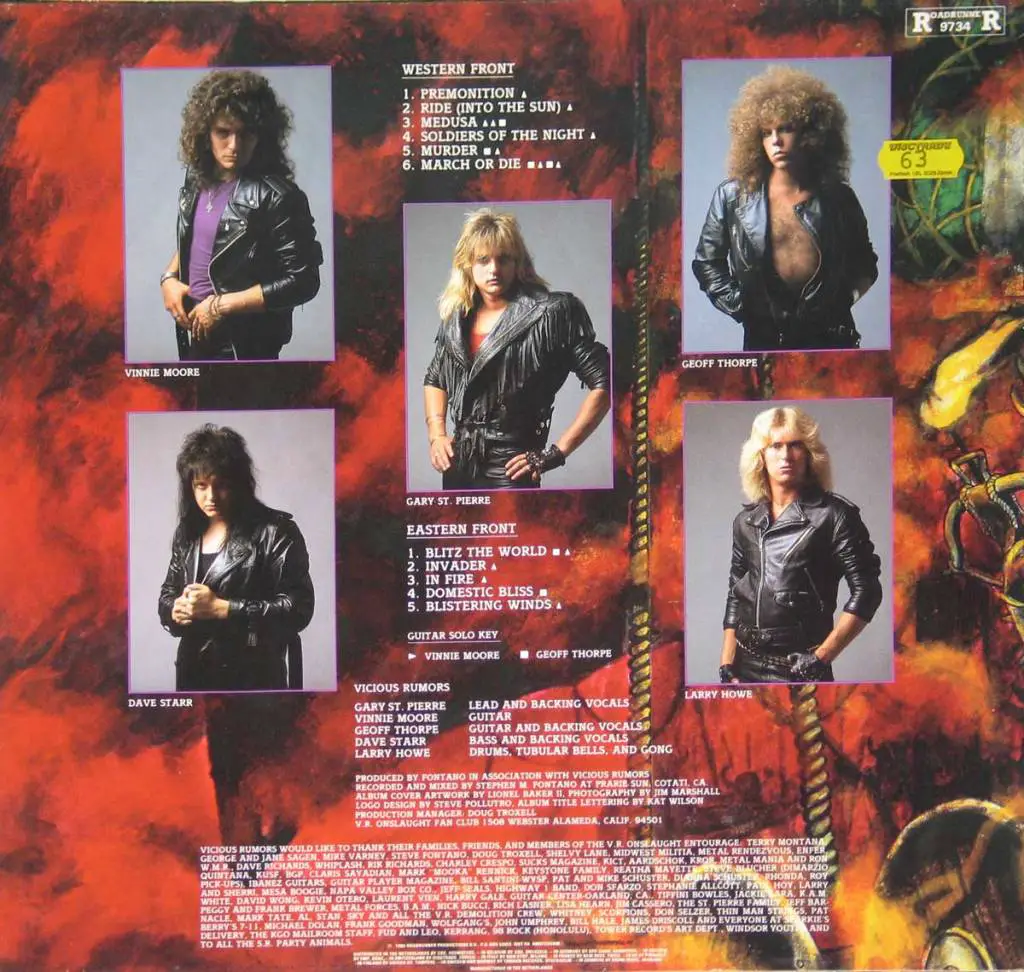
Andrew:
One of your earliest records was with Vicious Rumors on their 1985 album, Soldiers Of The Night. How did you end up hooking up with them?
Vinnie:
I had been talking to Mike Varney, who owned Shrapnel Records about doing an album. He had Vicious Rumors on his label, and they were looking for a guitarist, so it was sort of a no-brainer that he would suggest that I join the band.
Andrew:
What led to the decision to move on from Vicious Rumors, and launch your solo career officially in 1986, with the release of Mind’s Eye?
Vinnie:
I was twenty years old at the time and from the east coast. I went out to Santa Rosa, CA to do that, and to be honest, I was really homesick for the four months I was there. I stayed at Geoff’s place and slept on the floor, which isn’t so bad at that age, but I just couldn’t see how I would be able to move out there permanently. After recording the album, I went home, and we just sort of waited to see if there would be a tour. It would have been awesome to do shows with them, but during this period, Varney and I began talking about me doing a solo record. I started writing songs, and things started happening very quickly, and I was soon so deep into it, that I had to continue seeing it through, and following my own path.
Andrew:
Looking back on Mind’s Eye, what do you recall about the recording sessions for the album? Is there anything you would change, or do you feel it still holds up?
Vinnie:
Yes, I would have made sure there was a little more time. [Laughs]. Also, the hours we recorded guitars were not very friendly. I’m still on east coast time, and you’re really going to fuckin’ keep me up until five in the morning recording guitars?? I was not too happy with that, but you do whatever it takes. Well, at twenty-one you do. Now, I would go to bed and say, “Fuck off. I’ll see you at 11 am.” [Laughs]. We did that whole record, including the mixing, in eleven days. That’s definitely turbo mode. I always wished that there had been more time to work on that and that we had approached a few things differently, but overall, it was a great experience, and I can’t complain about the way it turned out, or what it did for me. That record launched my career. Other players often mention to me that this album was a big influence on them. I have heard it quite a lot from accomplished players, honestly, so based on that, I would say that it must still hold up.
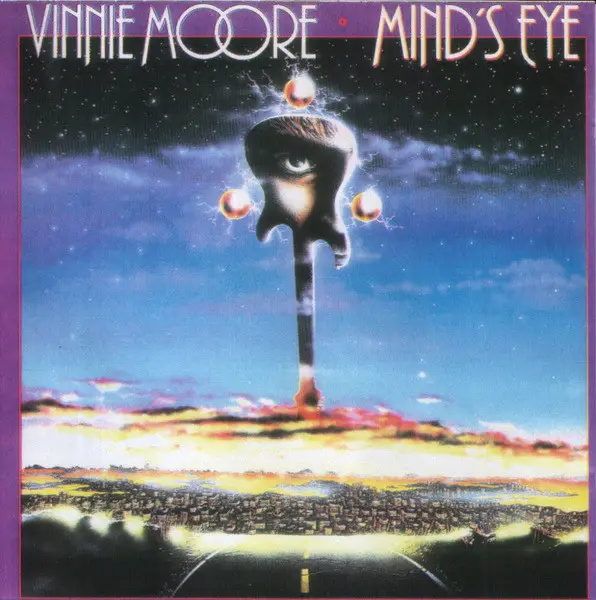
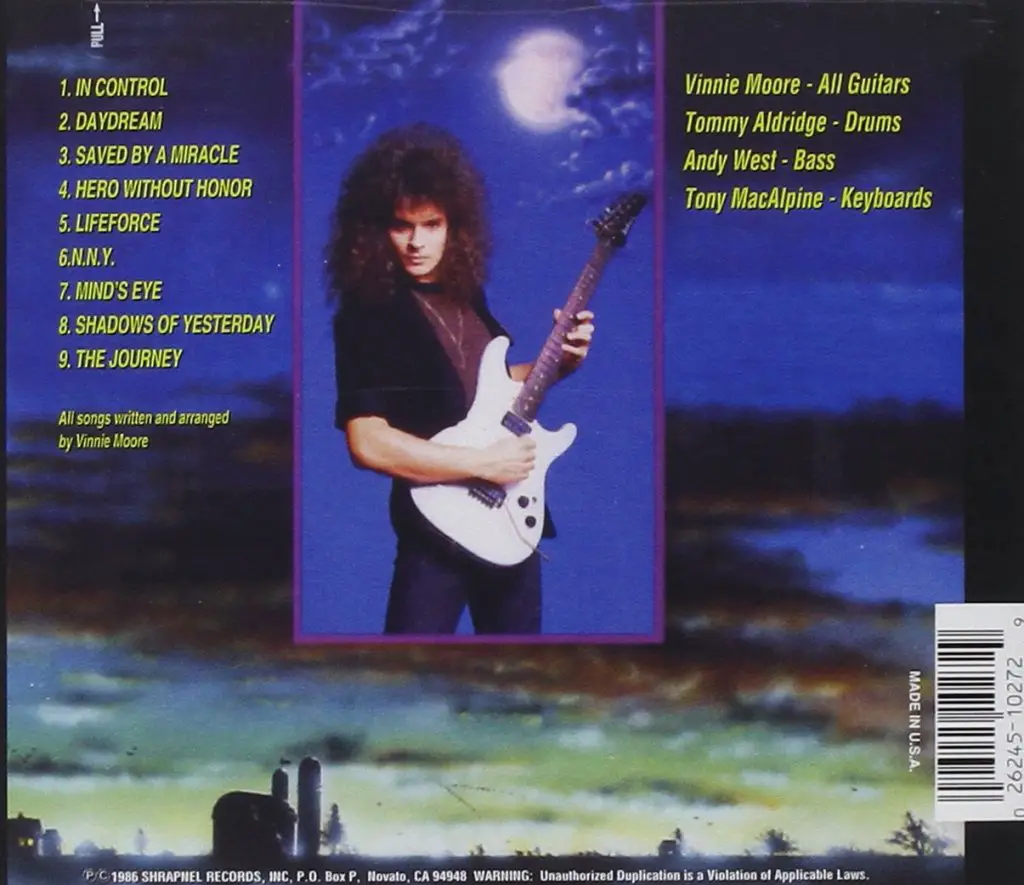
Andrew:
You released Time Odyssey in 1988, and then, Meltdown in 1991. What was your progression like from album to album in those early years? Your playing seemed to elevate above what would be considered mainstream at the time. How did you keep yourself relevant, while also maintaining your artistic integrity?
Vinnie:
I was always into following my own path, and discovering where it would lead. I loved playing and writing and just did it without thinking too much about it. I don’t know that anyone actually has some grand scheme. You just do it, man. With Time Odyssey, some of my fusion influences came out, as well as other elements. This stuff just happens naturally and is sort of a snapshot of your life at any given time. After it came out, and we had done some live shows, and it got to the point where it was time to make another record, I had changed a little. I got tired of doing the classically influenced stuff because it only reflected one side of my playing. I didn’t wanna be limited by that, and also, it had started to become overdone anyway. I needed to do something new that excited me. So, this was what fueled the Meltdown record. Also, I was always into Jazz and somehow the jazzy, swing-oriented thing started to come out more. My playing really started to evolve rhythmically at the time, and you can hear this on that record.
Andrew:
Take me through the events which led to you joining Alice Cooper’s band.
Vinnie:
I was in the studio recording Meltdown and got a call asking about playing on Hey Stoopid, which Alice was recording at the time. They were having a bunch of guest guitarists play on it. They already had Slash, Joe Satriani, and Steve Vai, as well as others. It was an honor to be asked to be a part of that. I went up to Bearsville Studios, in upstate New York, to record the two tracks I was on, “Dirty Dreams,” and “Hurricane Years.” I played rhythms and leads, and it was all done in half a day. We all went for dinner, and then, I drove home. Weeks after that, I heard that they wanted to have me play on the tour.
Andrew:
Your only studio effort with Alice was the two tracks on Hey Stoopid, in 1991. What do you recall regarding the sessions?
Vinnie:
I remember my amp shutting off while recording, but luckily it was just a blown fuse. When I met Alice, he and Stef Burns were playing a game that they had invented on a ping pong table called “Scud Ball.” It involved plastic cups on the table and trying to get the ball to land in them. “Scud” came from the Scud Missile. So, one of my first conversations with Alice was regarding the rules of Scud ball. It was very cool to work with Peter Collins, who was producing, as well as Paul Northfield, who ended up mixing two of my records long after.
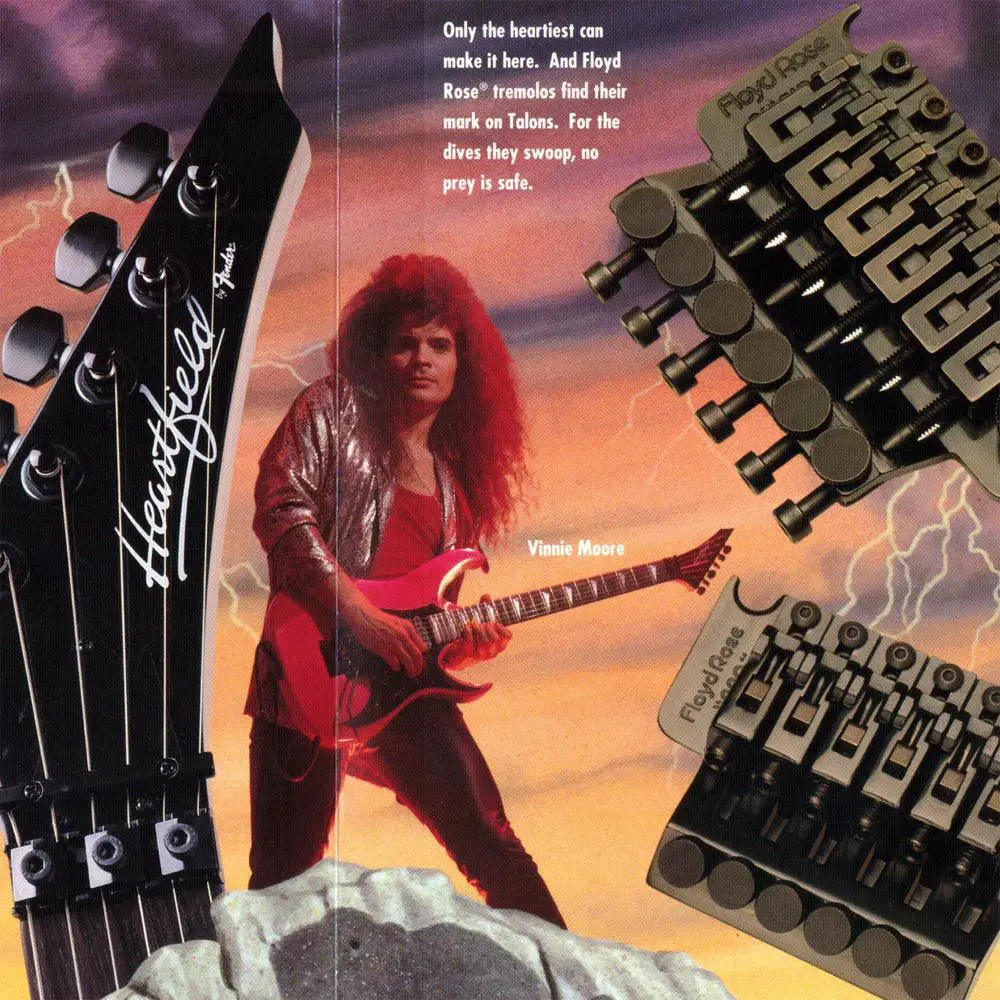
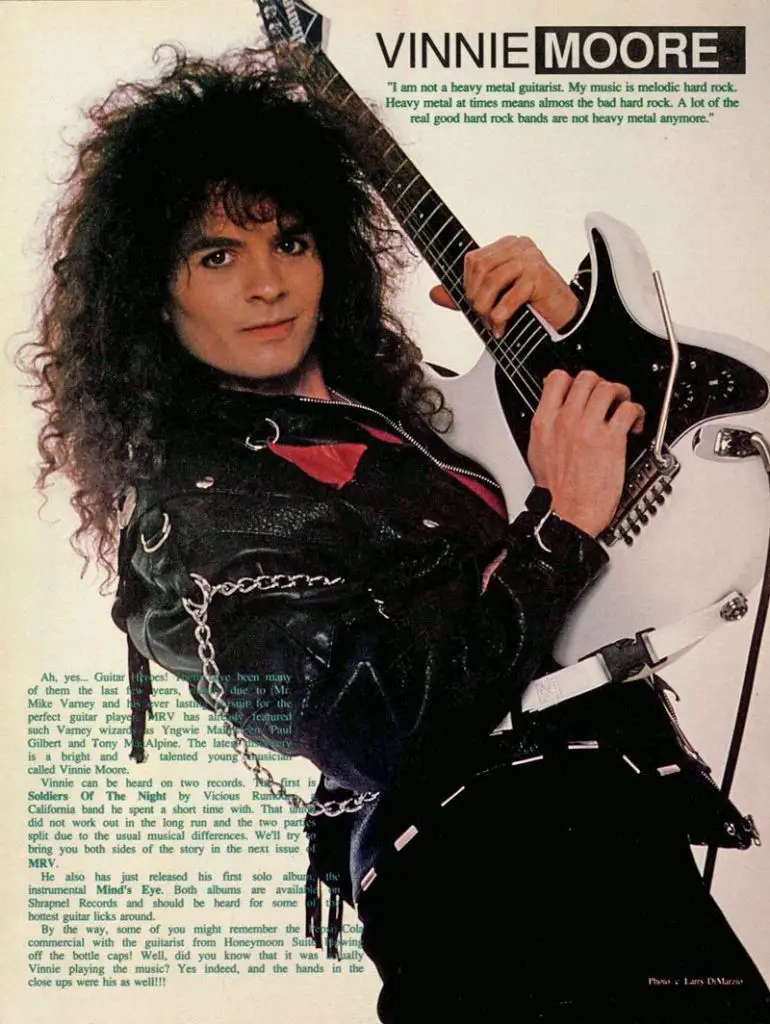
Andrew:
Ultimately, why didn’t you stick around with Alice Cooper as the 90s progressed?
Vinnie:
I had recorded Meltdown, and we had planned a big tour for that, which I hadn’t really done with the earlier records. When the thing with Alice happened, it changed things a little. It all looked like a perfect plan because I would be out there on the road all over the USA with Cooper when my record was coming out. But then, Alice’s tour plans changed, and they decided to go to Europe instead of doing the US. My record label told me, “There is no point in putting out my record if you’re going to be away in Europe for six months.” They planned to delay the release. I had finished with Meltdown in January, and the label was scheduled to release the album in October, which I was already not very happy about. If I stayed with Alice, it would have been held back for another half year. I just couldn’t do that. Also, opening for Rush became a possibility, and that was something I really wanted to do.
Andrew:
You picked up your solo career right where you left off once you left Alice Cooper. How do you feel your time with Alice Cooper affected you as a solo artist?
Vinnie:
I was an Alice fan when I was a kid, it was awesome to play those songs with him, and the tour was a lot of fun. It didn’t have an influence on me musically though.
Andrew:
Your solo career seemed to get put on hold again once you joined UFO in 2003. Take me through your indoctrination into the band.
Vinnie:
They were looking for a guitarist, and a mutual friend suggested me and told them he thought I would be a good fit. I was asked to send some of my music to Phil [Mogg], so I put eleven songs on a CD and sent it to him. A couple of weeks later, I heard that he liked the music and that he would like me to join the band. It was a good opportunity for me because he was looking for a songwriter to collaborate with, and not just a hired hand guitarist. The first thing we did was get together in Germany to start on the You Are Here record. And then, the tour started shortly after that. I thought it might last about five years, but here we are twenty years later. Wow. There have been a lot of records, and tons of touring all over the world. It has been a very good thing for me. I have done solo records in between all this, and have done many solo tours too. It all has kept me very busy.
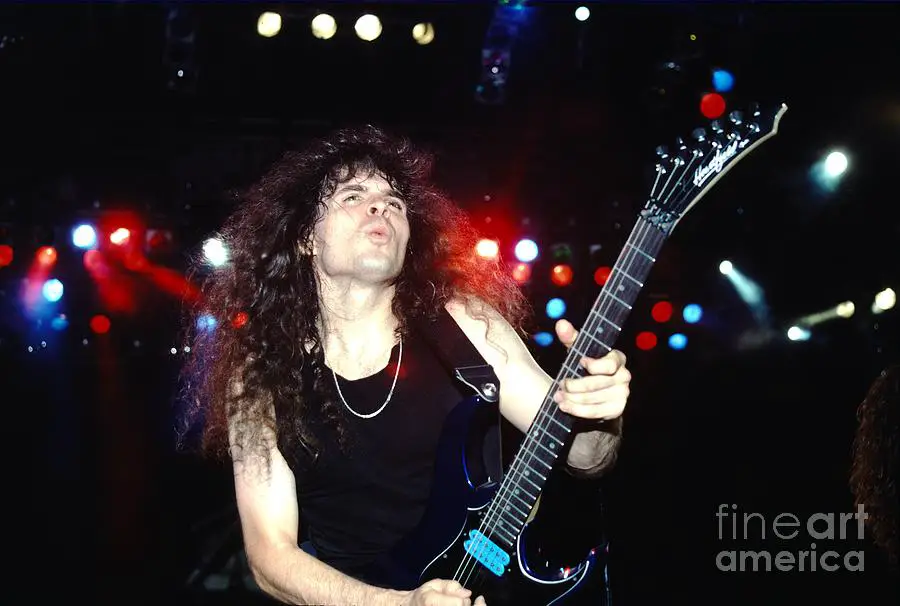
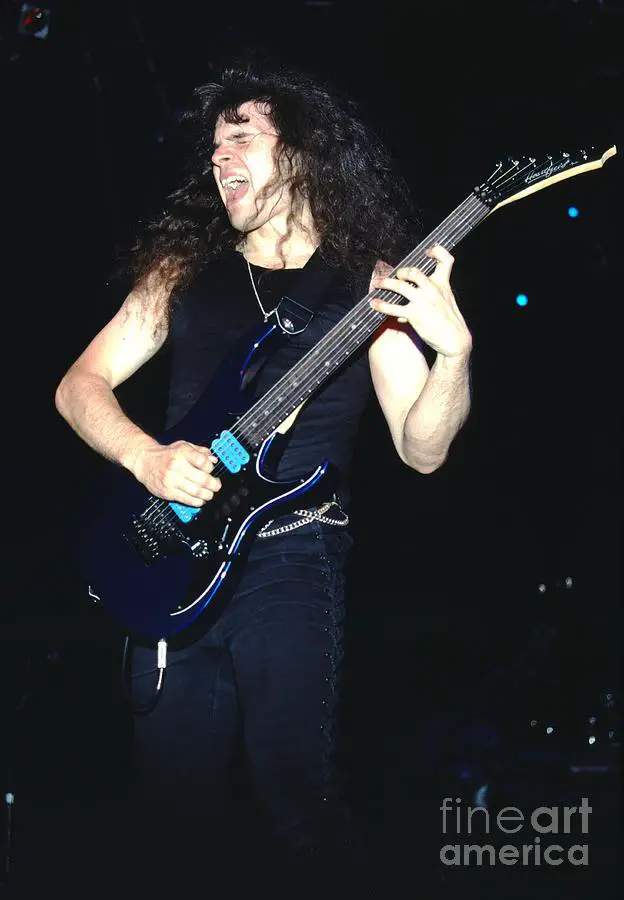
Andrew:
You’ve been with UFO ever since, and have been a part of some wonderful late-career material for the legendary outfit. What factors have contributed to your relationship with the band being a lasting one?
Vinnie:
I think the fact that we all enjoy doing it, and for the most part, get along so well. It’s been almost two years since we’ve done a show because of all this COVID crap, and we all miss one another.
Andrew:
UFO has a rich history in Rock, and Heavy Metal, and has also had its share of wonderful guitarists to boot. As a part of that history, how do you go about maintaining the legacy, while moving it forward with your own unique stamp?
Vinnie:
I pretty much approach playing the older songs like I would my own. Some guitar parts are obviously part of the song and need to be played, and then others are more improv type of stuff and should be felt, and played in the moment. As far as the records, I write more of my Rock-oriented style songs.
Andrew:
I mentioned that UFO is a classic band, with so many classic songs. This said, what are some of your favorites to play live?
Vinnie:
“Too Hot To Handle,” “Lights Out,” “Rock Bottom,” “Shoot Shoot,” honestly, all of them are fun to play. I was a UFO fan as a kid, so these songs are part of my musical fabric.
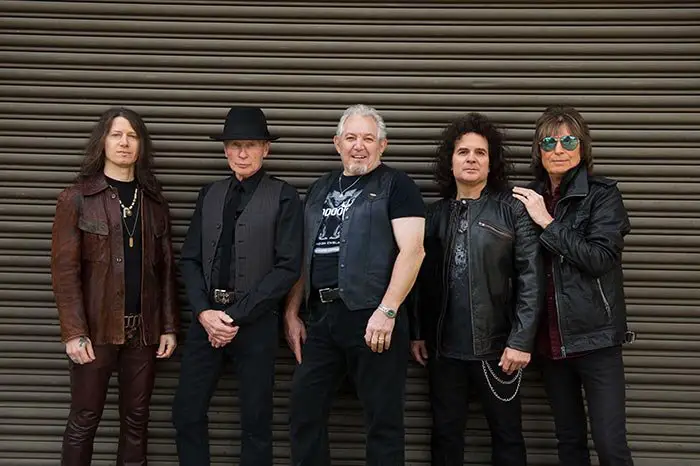
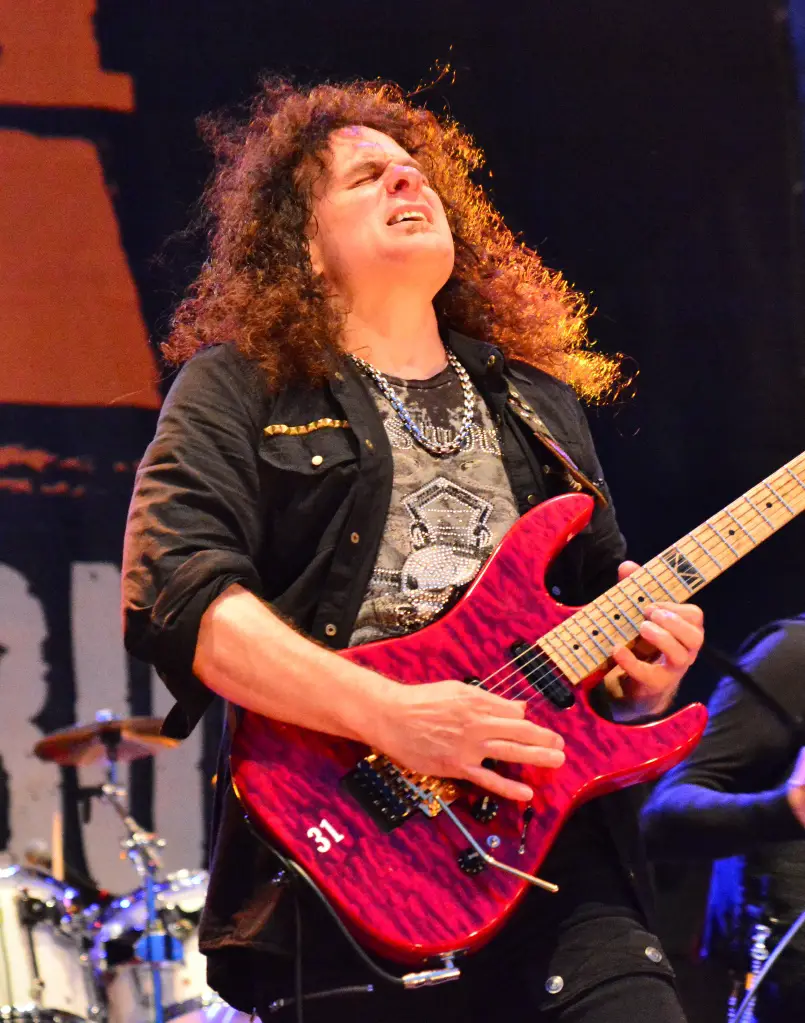
Andrew:
In 2009, you finally picked your solo career back up with the release of To The Core in 2009, and followed it up with Aerial Visions in 2015, and most recently, Soul Shifter in 2019. At this stage of the game, how do you view yourself as a solo artist compared to your younger years? What’s changed?
Vinnie:
I am showing more of what I’m all about stylistically now compared to the early records, which were more focused in a narrower direction. I’m still following my path, and writing music that inspires, and excites me. What’s changed is that people evolve over time. You live your life, and your experiences come out in your work. I couldn’t possibly make the same record I would have in 1988, as I’m in a totally different reality, and headspace now. And in a lot of ways, a different person, as we all are.
Andrew:
What type of guitars, pedals, effects, and amps are you using these days in the studio vs. the live setting? Are you into vintage guitars, or are you all about new equipment?
Vinnie:
Lately, I have been playing Kramer guitars mostly through my Marshall JMP 100 watt head from 1980. I run the amp with a little dirt, and then use a pedal to push the input a little harder. In the past few years, it has been the KOT, The Archer, and on my latest stuff, the Fulltone Octafuzz as well. I originally bought the Octafuzz for the higher octave thing but realized that it sounds great without the upper octave used just as fuzz. I don’t take much stock in the whole vintage guitar thing. A good guitar is a good guitar, regardless of what year it was made. It might make you feel better while you play it, so that counts for something, but record it, and see how many people can pass the blindfold test.
Andrew:
It’s been several years since we’ve seen a new UFO, and solo album. What’s next on your docket, Vinnie?
Vinnie:
I am almost finished mixing my new solo record, which I plan to release in the first quarter of this year. I haven’t decided on a title yet, still kicking around a few ideas. But more news about this will be coming fairly soon.
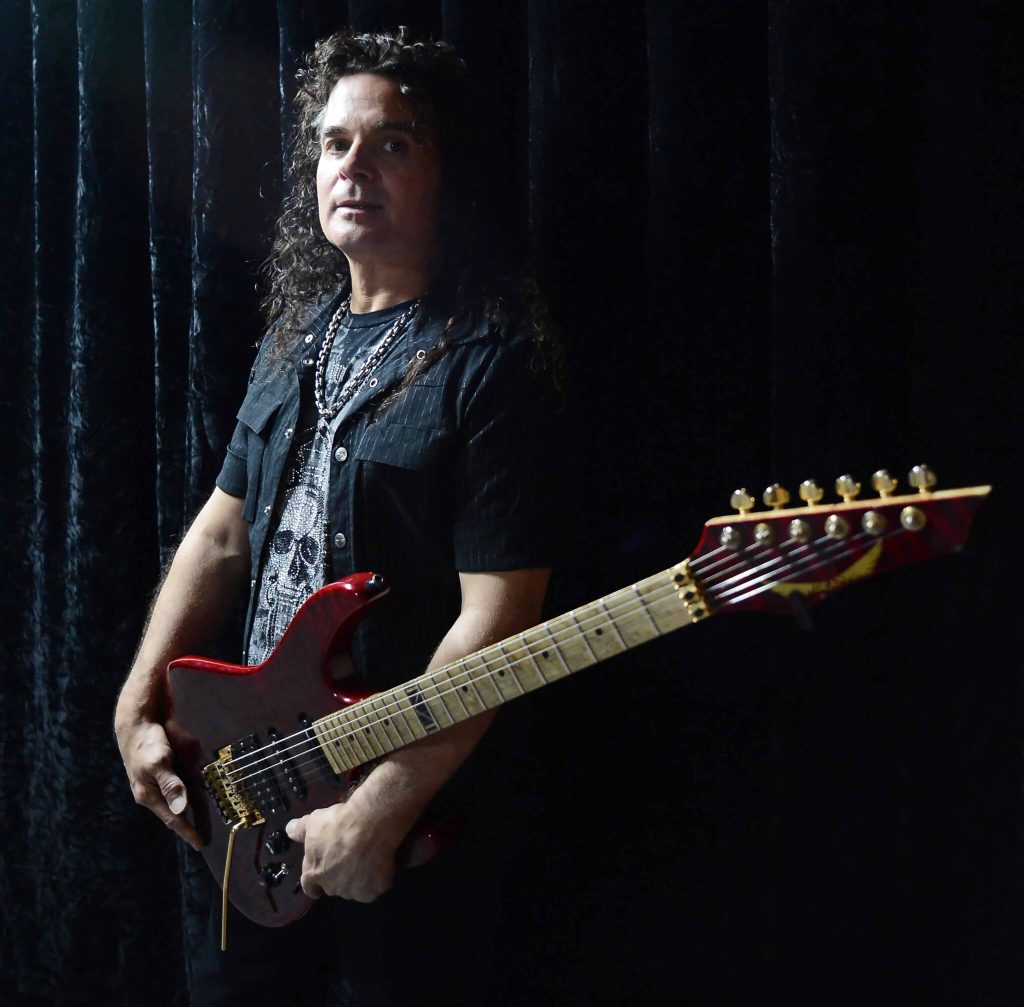
Interested in learning more about the work of Vinnie Moore & UFO? Check out the links below:
Dig this interview? Check out the full catalog of VWMusic Interviews, by Andrew Daly, here: www.vinylwritermusic.com/interviews
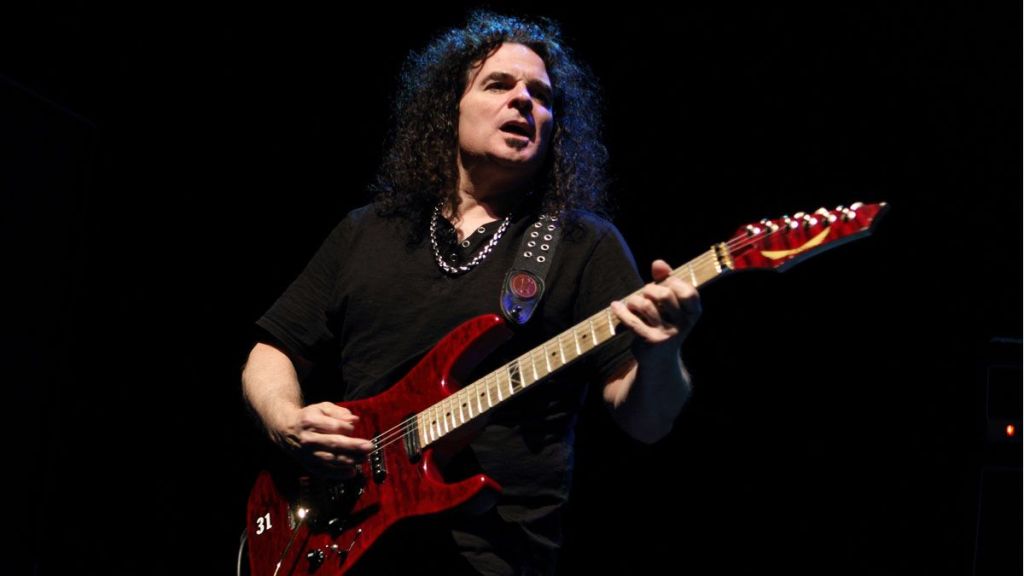




Leave a Reply